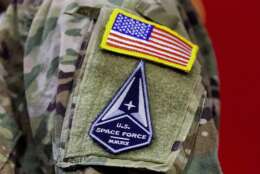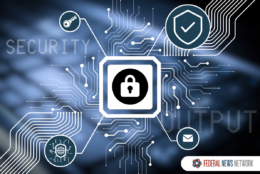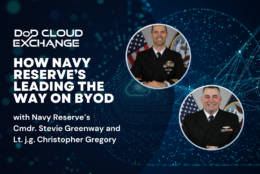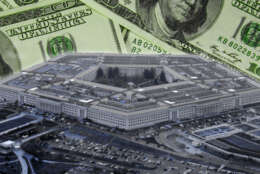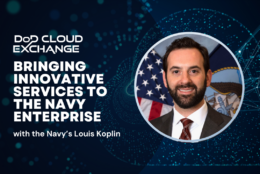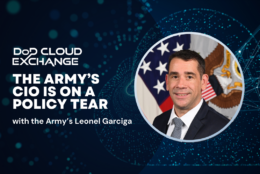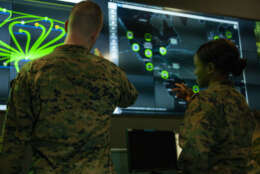Hubbard Radio Washington DC, LLC. All rights reserved. This website is not intended for users located within the European Economic Area.
On Air: Federal News Network
On DoD
-
“It's something that we have to continue to prioritize and put to the top of the list,” said Lt. Gen. Doug Shiess commander of U.S. Space Forces-Space.
March 29, 2024 -
DoD wants its vendors to be more cyber secure, including by expanding the pool of vendors who can take part in the no-cost cyber services it already offers.
March 29, 2024 -
Over the past 18 months, DoD has been working to turn a myriad OSD offices into an IT enterprise. A new agreement takes that effort a step further.
March 26, 2024 -
The Navy Reserve's far-flung workforce needed secure IT access anywhere, anytime. Now, the reserve's deploying the capability across the fleet.
March 25, 2024 -
The U.S. Transportation Command will kick off a three-year effort to make it easier for users to access data anywhere, anytime, its transformation chief says.
March 25, 2024 -
In Japan, DoD appears to have both an insufficient number of health care employees and a large unemployed health care workforce ready to answer the call.
March 25, 2024 -
Leslie Beavers, the principal deputy CIO for DoD, said a key focus for the near future is to improve the warfighter’s experience in using IT.
March 22, 2024 -
Lawmakers agreed to increase the amount of money DoD can reallocate without prior permission from Congress, but rejected other calls for budget flexibility.
March 22, 2024 -
PEO EIS is shifting to agile software development, applying rigor of FinOps, while also making sure cybersecurity is top of mind.
March 22, 2024 -
Budget instabilities and limited application of new acquisition pathways stall defense innovation efforts, a new report finds.
March 22, 2024 -
Using four-phase "horizon" process, Navy balances user experience and security to bring innovative services to the enterprise.
March 21, 2024 -
The Army CIO expects the service's new software development policy will bring better capabilities to soldiers faster.
March 21, 2024 -
Steve Wallace, the director of emerging technology at DISA, said a new tool, called Concierge AI, will reduce the friction to the user to find and analyze data.
March 19, 2024 -
Shery Thomas, the cyber technology officer for the Marine Corps Cyberspace Command, said network consolidation is helping improve zero trust efforts.
March 18, 2024

